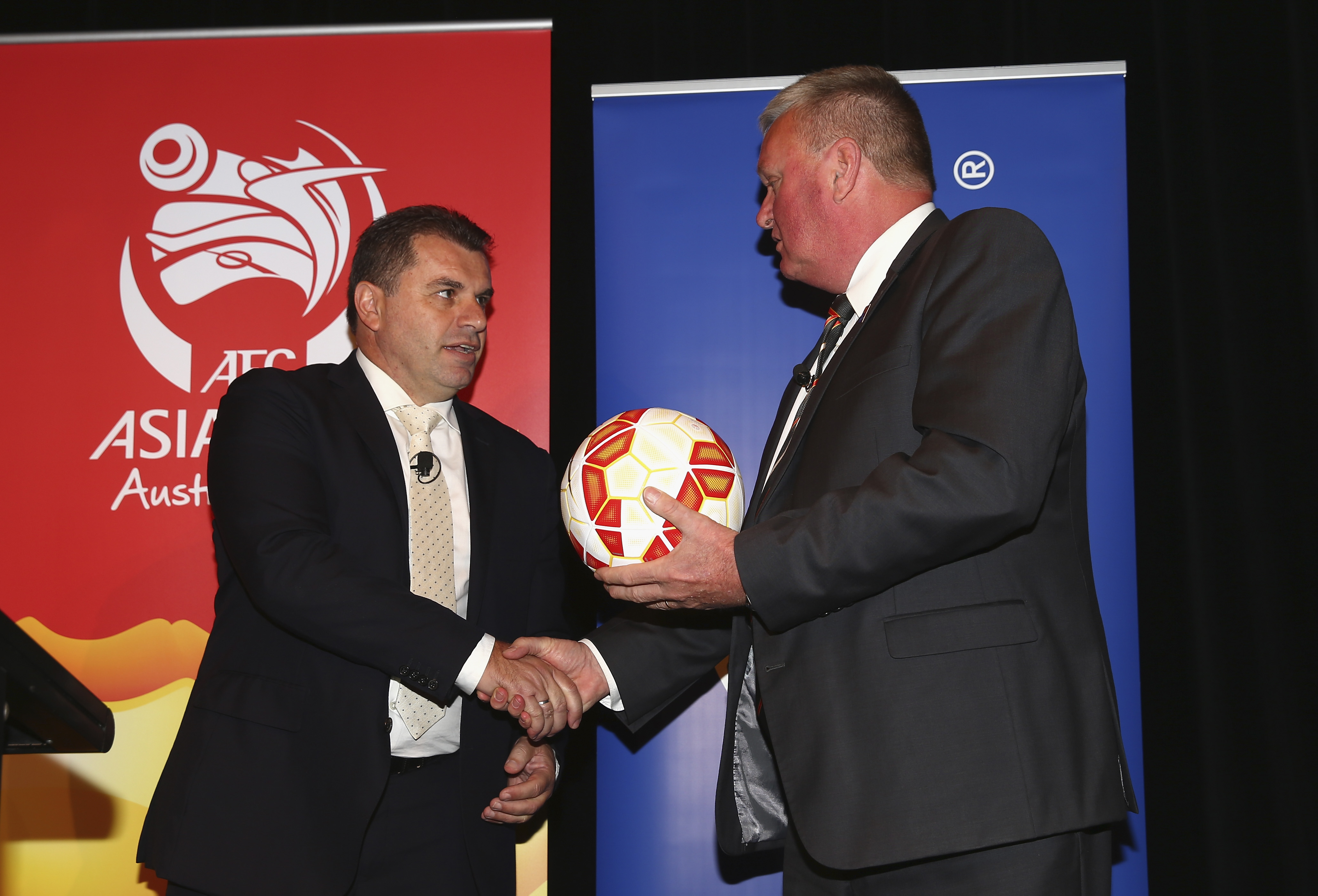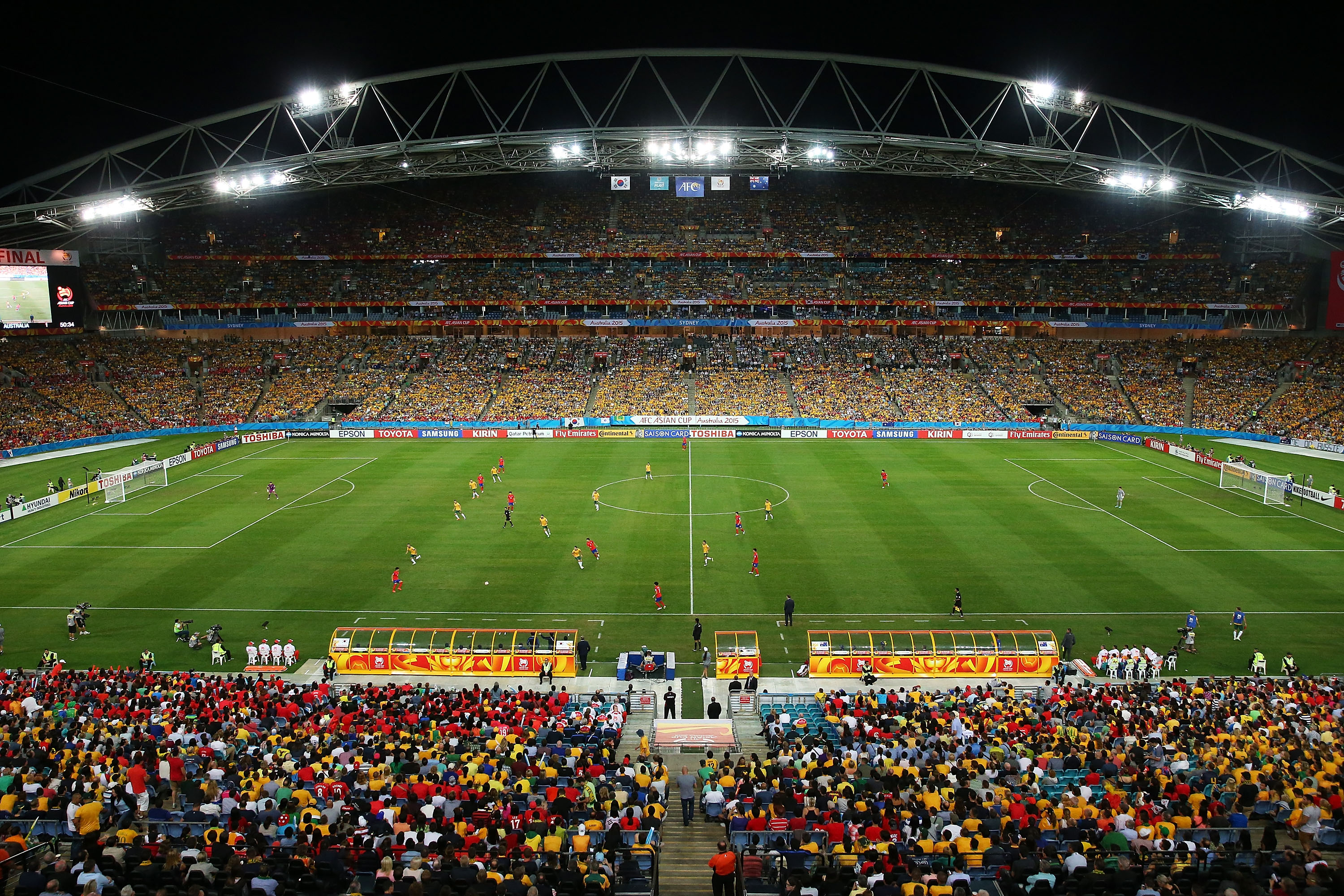They came forward in their hundreds, immigrants, first-generation Australians and those whose forbears came to the country in the 19th and 20th centuries.
2015 AFC Asian Cup Hub: Celebrating 10 years of the Socceroos' triumph

They spoke many languages and generally supported the Socceroos and one other nation - the country of their birth perhaps, or that of their ancestors.
But when the Asian Cup kicked off in January 2015 they were all united in one purpose: to ensure that, off the field, the competition ran as smoothly as possible and that its organisation would leave the whole of the continent with a favourable impression of Australia's capacity to put on big events.
Sure, Australia had staged a phenomenally successful Olympics in Sydney in 2000, but that was 15 years earlier: this was a new test and Australia's volunteers, just as much as the country's football administration, were keen to set a new benchmark for the Asian Cup.
In all, there were some 1,300 volunteers who worked at the tournament, all small but essential cogs in the delivery of a successful competition crowned by the Socceroos' on-field success in the final over South Korea.
With games scheduled up and down the Eastern seaboard, there was a concentration of people from Victoria, New South Wales and Queensland, as well as their respective capital cities, Melbourne, Sydney and Brisbane.
They took on a vast array of different roles and tasks to make sure that the month-long festival of football ran smoothly and efficiently: that people got to where they should be, that foreigners would not be duped or sent to the wrong venues, that match officials were treated with respect and politeness, allowing them to do their jobs without having to worry about the logistics of the event.
Michael Brown was the executive in charge of the Local Organising Committee (LOC) for the tournament, a role he took on in 2012, almost three years before the Socceroos kicked off the 2015 AFC Asian Cup against Kuwait in Melbourne in January 2015.

In that capacity, he was in ultimate charge of the volunteer programme and the man who would have carried the can had things not gone smoothly. Fortunately, Brown and his team did an excellent job in sifting, sorting and assessing the myriad applicants, chose first-rate staff and reaped the reward, not just in logistical success but personal memories that have lasted a lifetime.
"It was a fabulous memory, probably the best thing I have done,'' says the experienced sports executive who is now working as a consultant.
That is quite an admission when a glance at Brown's CV shows he has been a CEO at the AFL's Hawthorn Football Club, a senior executive at Cricket Australia, CEO of the Rugby League World Cup and a senior figure at the NRL, as well as running the Kardinia Park Trust, the ground being the home venue of AFL powerhouse Geelong.
"When I started, people were mocking the fact that no one would turn up and that it would be a waste of time. That was a real driver to connect with the communities.
"We had to work with local people, build a team and it was great to do so.
"As I reflected over the years, all those volunteers gave up so many hours in places like Newcastle and Canberra, away from the big cities, welcomed people and worked hard to make everyone feel positive.
"It was the same year as the Cricket World Cup, yet we got one million people to 32 games of soccer, which was a credit to the multicultural communities and the fact that the Socceroos did so well."
One spin-off was that Brown and his team of executives and volunteers were able to collect a huge database, not just of attendees but the volunteers themselves, some of whom might not have had a great interest in football at that time but could be nurtured into the future.
Not just anyone could do the job, however: as Brown points out the LOC had to do numerous police and background checks to screen applicants. But those who got through were invaluable.
"We took the games to the regions as well as the capital cities and the reaction to the Socceroos in Newcastle [where they beat the UAE in the semi-final] was fantastic. The games in the big cities were remarkable, and it was an eye-opener for the Asian Football Confederation.
"Because we had a very broad range of language skills from Arabic to Japanese and all others in between, we were able to select people to work with the teams from those areas. But the average volunteer was someone in their late sixties, semi-retired or retired, someone who wanted to be involved in a major event in the country."
There were a plethora of jobs that had to be done.
Volunteers manned stations, drove cars, met people at the airports, manned security booths, gave directions on the streets near grounds, staffed information booths in cities and in hotels where people could get tourist information or even find out where to buy match tickets and arrange transport to get to and from matches.
"For years afterwards, I used to get notes from people, updating me on what they were doing, their families, their kids, it became like a family for us all,'' Brown explains.
"It was a lot of fun, I met some great people and they were all able to get on together and gain a real sense of involvement.
"We had people who ferried match officials and other officials around, people helping the hotels with flyers, advertisements, and we had people at the venues, liaison people at every gate, people at stations directing people to the stadium at Sydney and Flinders Street in Melbourne.
"The AFC brought out a truckload of dignitaries and we had to drive them around, entertain them, show them about, bring them to games and to functions."

Brown sees the success of the volunteers at the Asian Cup as part of a continuum of community involvement in big sporting events. No one was looking for great rewards, they just wanted to contribute.
"We have been very good at volunteers, we had Olympic games before that, and the more events you have, the more it builds on that volunteering legacy. I still see photos of the Olympic games and people in Asian Cup uniforms.
"There are volunteers at the tennis, the golf, and so many other events. I think it's such an important part of sport today. There's not many sports that can survive and put on a world-class event without significant input from volunteers.
"First, you had to register, then you had to go to training sessions. We gave people train tickets and a sandwich lunch every day. It was January, so it was very hot, but you couldn't question their commitment. Like all volunteers, they had a smile on their face. I have great respect for them all and they helped make the tournament in 2015 so good."
*MICHAEL LYNCH a former chief soccer writer for the Melbourne Age, covered the 2015 Asian Cup for both The Age and the Sydney Morning Herald.
